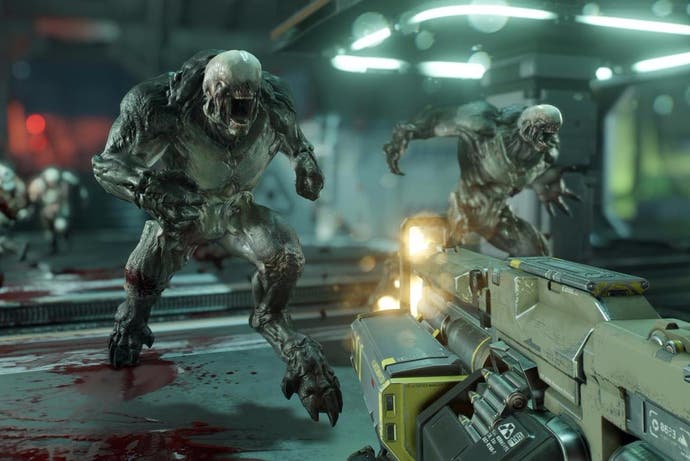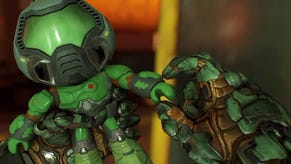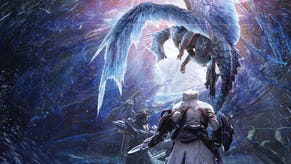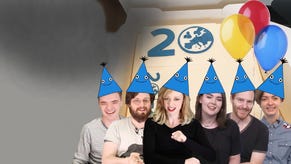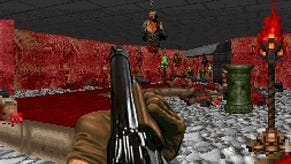2016: The year that time remembered
Sometimes I think gravity is a pity.
Two of my favourite quotes about physics come from what you'd probably call unscientific sources. One is from Lauren Child's scatterbrained hero Clarice Bean - "Sometimes I think gravity is a pity" - and the other is often attributed to Albert Einstein but is more likely from Ray Cummings' 1921 short story, The Time Professor: "Time is what keeps everything from happening all at once."
Games, I think, have long been inspired by the daydreaming sentiment behind Clarice Bean's earnest musing. We are used to speeding, double-jumping and flying through space without the rigid pull of the Earth's mass. And I think this year especially games have taken more notice of not-Albert Einstein, and given greater consideration to why things happen, when. What follows isn't a grand theory of how time appears in games in 2016 - you've got the wrong guy for that, I'm the guy who just quoted a children's book in an intro - but a survey of why, more than other years, 2016 had the tang of time about it.
One way time has imposed itself on 2016 is with the arrival of games previously caught in protracted development. I'm talking about the un-vapouring of The Last Guardian and Final Fantasy 15 in particular, though they both feel in some way related to our current wish-fulfillment crowdfunding culture, where sometimes just longing for something hard enough can make it real. Final Fantasy is, of course, a series locked into a constant process of self reinvention, its numbering sequence more like software versioning than a marker of continuation - it's just that Final Fantasy 15 underwent this process on its own and unreleased. In the end, the finished game feels new, all traces of decade-old systems iterated away during production, even if screenshots and trailers of its evolution exist in the amber chambers of the internet.
Not quite so The Last Guardian, which looks luminous, fluttering, transportive - and occasionally plays like a log in a bin. There's something timeless about Fumito Ueda's games anyway, the cycling of ideas (friendship, exile, the vulnerability of power) offering a sense of fable to stories that seem to take place nowhere, and no-when. They're some of the very few games which are so beautiful and feel so fragile that they rise above mundanity - I guess I'm talking about actual transcendence - and then you play them and remember that they can be really bloody frustrating. The Last Guardian in particular, delayed because it was too ambitious to run on the hardware for which it was originally intended, still feels like a game from PS3 or beyond, capable of uncannily recreating the behaviors of a creature that doesn't even exist, but still stuck with a camera that feels like riding a seesaw with a gorilla and puzzle solutions so unintuitive you can - and will - spend hours trying to interact with every single inanimate object placed in the game.
I think it's probably art.
I was struck, too, that flagship console exclusives from the last generation have both marked 2016 by acknowledging the existence of aging. Gears Of War and Uncharted are both power fantasies about being invulnerable, untouchable heroes, a proposition shaded in Gears Of War 4 and Uncharted 4 by the passing of time. Nathan Drake ponders his old keepsakes and thinks about it, Marcus Fenix sits in a chair drinking protein shakes and looks really, really angry about it - but neither game really feels it. This is time conjured as colouring, lending a fresh edge to the dynamics of these fourth-time-out heroes without impacting the untouchability of the games themselves.
Speaking of paradoxical approaches to the passing of time in the video games of 2016, how about that Battlefield 1? There are some sensitive and earnest touches in DICE's latest shooter, but it is still essentially a game about enjoying war off-setting some of the root vulgarity of this position by acting serious at key moments. The First World War here is like a new flavour of crisps or a returning style of trouser, so much variety and dressing to the core activity of death. There's a sense in which Battlefield 1 is passing itself in some impossible corridor of progress, marching backwards through history while striding forwards into the most technologically impressive Battlefield yet.
Doom also time-travels in its own way. id's reboot goes a step further than the current wave of remasters and tries to recreate a sensation of gaming, now unreachable through shifts in time and technology. New Doom or, as people are already refusing to call it, Noom, is a great example of an update managing a faithful translation of then into now, despite all the intangible subjectivities by which this process is governed. There was no real melee system in classic Doom, but the glory kills which have modern us performing trauma circus finishers when in range of weakened enemies feels classic all the same, full of that particular performance of fury and adolescent righteousness. It is a game trying as hard as it can to recapture its youth - or, more accurately, our youth.
I'm going to end by talking about my two favourite games of the year. I played Titanfall 2 and Dishonored 2 back-to-back, and, as others have noted, both games have levels based around the moment-to-moment manipulation of time. These levels are extraordinary achievements in themselves - really, just the most fun I've had this year, the kind of imagination and craft that makes you smile as you play. But I was struck, too, by the positioning of these levels. In both games they come after other, similarly intricate stages which offer thorough deconstructions of the very idea of space - Dishonored 2's clockwork mansion, which reformulates around us, offering alternate pathways and secret, behind-the-sets entrances, and Titanfall 2's Into The Abyss, featuring a colossal factory of giant moving platforms and self-constructing houses and towns.
There's something in the casual ingenuity of these levels that suggests a sort of boredom with plain old space, as though the presentation of vanilla reality just doesn't cut it any more. I can't help but think of No Man's Sky here, which offered up a functioning universe and was met with a collective shrug. And so Titanfall 2 and Dishonored 2 give us Effect And Cause and A Crack In The Slab, twin uses of a time-travelling device allowing unlimited movement between concurrently running moments in time.
I love that these levels arrived weeks apart, presumably without either team having knowledge of the other's work. And I love that each is an extension of well-defined design philosophies - that Respawn, the studio that reaches back to Medal Of Honor and Call Of Duty, have hit a hard limit on their experiments with first-person manoeuvrability ("sometimes I think gravity is a pity") and have extended the wall-running and mid-air dodging into a fourth dimension, while Arkane, who make immersive sims in the tradition of Origin and Ion Storm, have found a way to double down on the feeling of inhabiting a place, and to make more immediate the notion of actions and their consequences.
Of course really these are both ways of extending space, rather than playing with time for it's own sake. "Time is what keeps everything from happening all at once" - but if you mess around with the controls, you can make two bits of it happen at once and jump around joyfully between the two. Time manipulation here is a way of playing two versions of the same place simultaneously, of reinvesting the standard dimensions of play with something a little magical.
Perhaps 2016 was an outlier, unusually marked by the idea of time. Perhaps it's bigger than that, and has to do with how a sense of legacy is becoming more important to games now they're moving out of that awkward adolescent phase, with the nostalgic self-refection of Nintendo and PlayStation, and our increased acceptance of a retro past that once seemed so unbearably embarrassing. Perhaps I just thought of a title I really liked and wrote a whole article to justify it. And, perhaps, I should have mentioned Quantum Break in that article, only I didn't play it. I didn't have the time.
